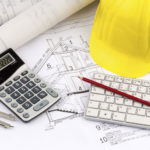There’s lots of exciting, shiny new equipment out there in the construction business. Heavy machinery is exciting to purchase. Owning your own fleet of construction equipment can make you feel like you’re well prepared to take on any job. But before you dive in and buy expensive equipment, it is worth considering whether rental might be a better option. Determining the relative value of renting versus purchasing may be more complicated than you think. So is it better to rent or buy construction equipment? The answer is that of course it depends on the circumstances. This article will focus on ways that you might make that decision.
The Allure of Purchasing
As a construction contractor, chances are you love your tools. And what tool is more exciting than a large, expensive machine. Who doesn’t love a shiny new backhoe earth mover? But just like any other purchase, it’s important to move beyond pure emotion when you decide to purchase. This is, after all, a business investment. Before you can make any investment in your business, you need to determine if this is the right way to spend your money at this time. That doesn’t mean that there is never a situation where buying is the right decision. But it does mean that the decision to rent or to buy needs to be based on running the numbers and seeing which will be more profitable for your business.
Generally, when deciding if rental might be the better option, you need to factor in a number of benefits you get from rental. Those can be compared to the possible benefits of ownership. Once you have a comparison that includes some hard numbers, you can make an informed decision about your purchase or rental.
How Long Will You Be Paying for Your Equipment
One significant difference between purchasing and renting is the payment period. When you purchase, you will be paying for that purchase for a while. Assuming you’re not purchasing your equipment with cash, you can make payments for years.
When you rent, you only pay for what you use. If you end up using a piece of equipment for three or four weeks, you pay for it for three or four weeks. When you stop using it, you stop paying for it.
The downside of rental is that you will continue to pay for the equipment every time you use it, even long after your purchase would have been paid off. This factor comes down to cold, hard accounting. You will need to predict how much you will really use a piece of equipment. Over the time it would take you to pay off the item, will you use it enough that the purchase price is less than the combined rental fees. Will you continue to use the item after it is paid off? How much will that save you? There is no replacement for hard numbers here. Be realistic and do the math.
Have You Considered the Benefits of Renting
There are some distinct benefits to renting equipment over buying it.
First of all, you can be sure to always have the latest technology. Once you purchase equipment, it makes sense to keep it for as long as you can. That means that you are locked into the state-of-the-art at the time you purchased it. As time goes on, you will find that newer, more efficient equipment is available. If you rent, you leave it to the rental company to upgrade regularly. For rental companies, it makes sense to invest in new equipment. Every time you rent, you will get the latest and best technology.
Another cost you can leave to the rental company is maintenance. If you purchase equipment, you will need to hire or train someone who can maintain and repair the equipment. Many rental agreements include routine maintenance, repairs, and even spare parts. If you read your rental agreement carefully, you can find the most beneficial programs. Leaving maintenance to the rental company can be a significant factor to consider when pricing out your purchase and rental options.
If you work in more than one region, renting can be a good way to avoid shipping heavy machinery. Moving heavy machinery from region to region can be quite expensive. Often, it makes more sense to rent locally and avoid shipping altogether. Of course, for equipment you own, there is no question that it is best to ship it. But beware of shipping costs. They can take a hefty cut out of your profits and rarely have any special effects or benefits on your final project.
Keeping Your Options Open
When you buy a large piece of machinery, you are investing a lot of capital. That capital is no longer available to fund new projects and new opportunities. By renting, you only pay for the products you are using as you use them. That opens up a whole range of projects that you normally wouldn’t be able to afford.
Renting Helps Accounting
As a business owner, you probably want to keep your taxes as low as possible. Business deductions are a big part of that. So it’s worth noting the rental has a very different tax implication than purchasing. When you rent, your rental costs are immediately deductible. However, when it comes to purchasing, the tax deduction is a little more complicated. Often a purchase of rental equipment needs to be depreciated over time.
Rental costs are also not considered a liability on your balance sheet. While that may sound like a somewhat technical detail, it can have significant consequences. One effect is that allows you to maintain your borrowing power.
Testing Out New Equipment
When you buy a new car, you always start with a test drive, so shouldn’t you do the same for new equipment. Purchasing new equipment may not give you that opportunity. But when you rent, you can try out any type of equipment before diving in and making a purchase. If the equipment is what you need, you can always go out and purchase it. If it’s not what you need, you can end your rental, and you’ve avoided a big investment. There are even some lease to buy programs that will let you credit your rental fees towards the purchase of the equipment if you decide you want to buy it.
When It Makes Sense to Buy
With all the advantages of renting, it may seem that renting is the way to go all the time. But there are, in fact, situations in which it makes more sense to buy. The most significant factor in whether you should rent or buy is how often you plan to use the equipment. For something you will be using day in and day out, it actually does make sense to buy it. You will get the equivalent of the rental fees back relatively quickly, and in the end, you will own it outright. A good rule of thumb is that if you will be using a piece of equipment 60 to 70 percent of the time, it’s worth buying.
Of course, to really make the best decision, you will need to run the numbers. To do that, you will need to know exactly what your costs are and how that piece of equipment fits in. While you could try to dig through all your invoices and receipts, technology provides a better way. Construction management software from Needo makes it easy to maintain records of all of your costs and expenses, plus all of your revenue. Armed with that information, you can make good choices for your business. Contact Needo today to find out how Needo construction management software can help your business.


